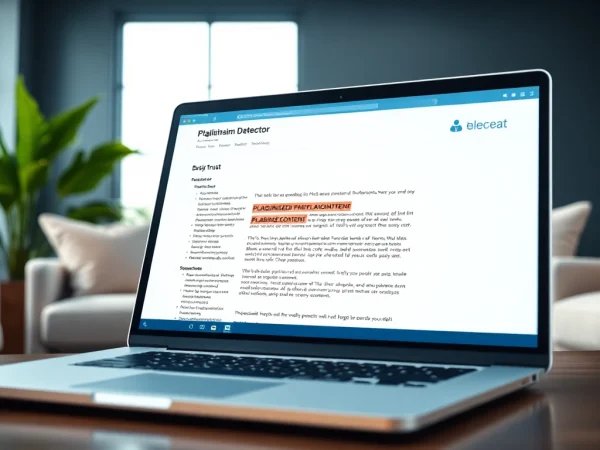Mastering PHP Developer Training Online: Essential Skills and Resources
Understanding PHP and Its Importance in Web Development
What is PHP?
PHP, which stands for “Hypertext Preprocessor,” is a widely-used open-source scripting language primarily utilized for server-side web development. Its primary job is to enable developers to create dynamic content that interacts with databases, manages file systems, and performs various web-related tasks. PHP scripts can be embedded into HTML code or invoked from command line scripts, rendering it versatile for web development.
Key Features of PHP
PHP is celebrated for its rich array of features that cater to both novice and experienced developers. Some of its key features include:
- Open Source: PHP is free to use and is continually improved by a worldwide community.
- Cross-Platform: It runs on various operating systems, including Windows, macOS, and Linux, making it adaptable for numerous environments.
- Database Integration: PHP effortlessly integrates with many database systems like MySQL, PostgreSQL, and SQLite, enhancing its capabilities in data management.
- Rich Functionality: PHP supports several third-party libraries, frameworks, and tools that help developers to expedite their work.
- Ease of Learning: The syntax of PHP is similar to that of C and Java, which makes it easy for beginners to pick it up quickly.
Why PHP Developer Training Online Matters
In today’s digital era, having a solid understanding of PHP is critical for web developers. PHP developer training online provides learners with the flexibility to study at their own pace and from the comfort of their homes. This method of learning is essential as it allows individuals to balance their training with work or personal commitments. With PHP developer training online, learners can access up-to-date content, expert instructors, and a variety of resources aimed at developing core PHP skills essential for modern web development.
Finding the Right PHP Developer Training Online Program
Types of PHP Training Available
PHP training comes in various forms, catering to different preferences and learning styles:
- Self-Paced Courses: Ideal for those who prefer to learn at their own speed without strict schedules. These courses often come with recorded lectures and resources.
- Instructor-Led Training: These live sessions allow for direct interaction with instructors, offering real-time feedback and clarification on complex topics.
- Bootcamps: Intensive and immersive programs designed to accelerate learning within a specific timeframe, often incorporating hands-on projects.
- Workshops and Seminars: Short events focused on specific PHP topics or frameworks, offering deep dives into particular aspects of PHP.
Evaluating Course Quality and Content
Choosing the right PHP developer training online program requires careful evaluation of course content and quality. Consider the following:
- Curriculum: Ensure the curriculum covers essential topics, including PHP syntax, MySQL database management, and error handling.
- Instructor Qualifications: Research the instructors’ backgrounds to ensure they have adequate experience and credentials in PHP development.
- Support Resources: Look for courses offering supplemental materials, such as forums, study groups, and access to additional resources.
Testimonials and Success Stories
Reading testimonials and success stories from previous participants can provide insight into the effectiveness of the training program. Look for real-life examples where students have successfully transitioned into PHP developer roles post-training, highlighting their projects and skill development journeys.
Building Core PHP Skills through Online Learning
Essential PHP Concepts for Beginners
New learners should focus on grasping the following core concepts:
- Syntax and Variables: Understanding PHP syntax and how to declare and use variables is fundamental.
- Control Structures: Learning how to use conditional statements and loops will enable developers to manage the flow of execution in scripts.
- Functions: Mastering the creation and invocation of functions is crucial for writing reusable code.
- Arrays and Associative Arrays: Knowing how to use and manipulate arrays is vital for handling collections of data.
Advanced PHP Techniques and Frameworks
As developers progress, they should delve into advanced techniques such as:
- Object-Oriented Programming (OOP): Embrace OOP principles to create scalable and maintainable code.
- Use of Frameworks: Familiarizing oneself with popular PHP frameworks like Laravel, Symfony, and CodeIgniter can significantly increase productivity.
- RESTful APIs: Learning how to create and consume APIs with PHP is essential for modern web services.
Real-World Applications of PHP
PHP powers millions of websites and applications. Understanding its practical applications can inspire learners:
- Content Management Systems: PHP is the backbone of renowned CMS platforms like WordPress and Joomla, simplifying content management.
- E-commerce Platforms: Building e-commerce sites with robust features using PHP enhances user experiences and transactions.
- Web Applications: Available for various purposes, including social networks, forums, and job portals, often integrated with databases.
Maximizing Your Learning Experience with PHP Developer Training Online
Effective Study Techniques
To enhance learning outcomes when pursuing PHP developer training online, consider these study methods:
- Set Clear Goals: Define specific learning objectives to stay focused and motivated throughout the training.
- Practice Regularly: Consistent coding practice is key to reinforcing new knowledge and improving programming skills.
- Utilize Learning Aids: Make use of tutorials, videos, and coding challenges available online to supplement your learning.
Utilizing Online Communities and Forums
Engaging with online communities and forums can significantly enhance your learning experience. These platforms offer:
- Peer Support: Connect with fellow learners for discussions, study groups, and code reviews.
- Expert Insights: Gain knowledge from experienced developers who share their expertise and troubleshooting tips.
- Project Collaboration: Collaborate on projects to foster teamwork skills while deepening your understanding of PHP.
Combining Theory with Practical Projects
The most effective way to learn PHP is by applying theoretical knowledge to practical projects. Beginners can start small, perhaps by:
- Creating simple web forms that process user input.
- Building basic CRUD (Create, Read, Update, Delete) applications to interact with databases.
- Contributing to open-source projects to gain real-world experience and exposure to collaborative coding environments.
Measuring Success as a PHP Developer
Assessments and Certifications in PHP Developer Training Online
To validate the skills acquired through training, consider pursuing certifications in PHP development. Many reputable online courses offer certification that demonstrates your proficiency to potential employers. Assessments typically cover critical PHP concepts, helping identify knowledge gaps before certification exams.
Career Opportunities Post-Training
A successful PHP training program opens numerous career paths, including:
- Web Developer: Design and maintain websites, focusing on dynamic content generation.
- Backend Developer: Focus on server-side logic, database management, and ensuring high performance and responsiveness.
- Full Stack Developer: Work on both front-end and back-end technologies, providing holistic development solutions.
Staying Updated with PHP Trends and Technologies
The tech landscape is ever-changing, requiring developers to keep their skills updated. Continuous learning can involve:
- Participating in webinars and workshops focusing on new PHP technologies.
- Following PHP community blogs and influencers for the latest news and practices.
- Engaging in continuous education through advanced courses or specializations aligned with emerging trends.










